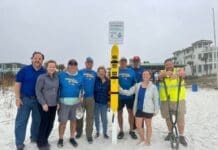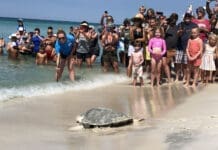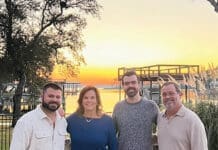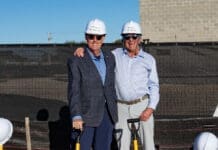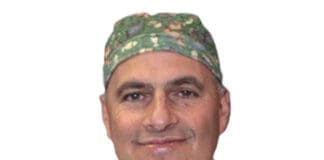“It’s all gone.” That’s what the lady on the news said.
She was an older woman, being interviewed by a reporter. Giant news camera shoved in her face.
The lady sounded like she was in a uniquely frantic state, poised somewhere between panic and absolute exhaustion. It is a frame of mind where you experience millions of emotions at once, and yet feel none of them.
I know this because that’s how she described it.
“It’s all gone. All of it.”
This was followed by images on my screen that were apocalyptic. One of America’s most historical storms. Hurricane Helene. Destruction from Florida to Virginia.
And here I am, sitting in my comfortable living room, watching the tube, thinking about how scary all this is.
These people’s lives are ruined. These people have nothing left. These are Americans.
These are my brothers and sisters.
Whole towns are gone. Highways have been upended. Floodwaters rage. Mudslides. Missing persons. Missing pets. People going hungry. People trapped. People injured.
All I can think about are the emails and texts going back and forth between those who experienced the nightmare.
“We still haven’t heard from my mom…”
“My son hasn’t called yet…”
“It’s been days and I don’t know where my husband is…”
As I write this, the death toll tops 120. And I just read somewhere that 600 are still missing. And that’s just the ones we know about.
And as I’m watching this unfold on the television, I’m about to cry. I’m about to give up, deep inside. For there is little hope left in this world, I’m thinking.
But then I see something.
On the television, I see a kid picking up debris. He’s slight and small, maybe 6 years old. Blond hair. And he’s out there helping. Busting his tail.
I see food trucks galore, on their way to affected areas. Saint Pete. Western North Carolina. Waycross. One Salvation Army food truck, teeming with volunteers, is capable of cranking out 12,000 meals at a time.
Small churches with food lines. Churches with buildings that don’t even exist anymore are feeding the hungry. Feeding each other.
Members of the Cajun Navy, speeding toward flood zones in bass boats, with utility trailers full of supplies.
I see young guys with chainsaws, slicing through fallen oaks. I see men and women from other states, who took a field trip into hell, just to help. They have no relatives here. They just want to pitch in.
I see the Baton Rouge Fire Department flying to Charlotte, North Carolina, just to be airlifted into a rural area of the state.
Volunteer hikers, on their way to the Tennessee state line, a badly damaged area that hasn’t been assisted yet.
There are mule packers, headquartered in the North Carolina hills. Men leading mule trains, trained to haul military ammunition, now delivering meals and water to neighbors stranded.
The stories are too many to count. As I write this, a new story of heroism is occurring every minute in this nation.
Lives are being saved. Heroes. Each one of them. They are carrying the wounded of our kinship toward safety, on their own backs.
And I am reminded of something I once heard one of my own heroes say about horrific events occurring in our world.
“Look for the helpers,” he said.
“You will always see people who are helping.”
He’s absolutely right. And in this case, they’re called Americans.
















